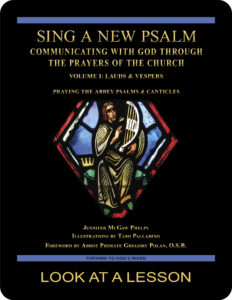strength / power / ability
 Paul’s Second Letter to the Corinthians and the Gospel According to Mark both address the concept of power, strength, or ability. While these concepts can seem separate in translation, a single Greek root connects power made perfect through weakness with Jesus’ inability to perform works.
Paul’s Second Letter to the Corinthians and the Gospel According to Mark both address the concept of power, strength, or ability. While these concepts can seem separate in translation, a single Greek root connects power made perfect through weakness with Jesus’ inability to perform works.
The Second Letter to the Corinthians 12:7–10 (NABRE) contains two mentions of the concept of power—”for power is made perfect in weakness” and “in order that the power of Christ may dwell with me.” The Greek word δύναμις (dunamis), is the root behind the English words “dynamic” and “dynamite.” It refers to strength or power and more broadly also comes to mean ability.
In the Gospel According to Mark 6:5 (NABRE), we see that Jesus “was not able to perform any mighty deed there.” The word translated as “able” and the word translated as “mighty deed” both come from the same root used by Paul. This passage is often seen as perplexing. We believe that God is omnipotent or all-powerful, so how and why could Jesus not do anything?
One possible explanation is that God will not heal us if we do not accept his healing, and so Jesus could not help people without acting against their will. This idea is consistent with other places in the Gospels where faith is seen as a prerequisite for God acting in peoples’ lives.
Where is God acting in your life? Are there any places where you think you could be preventing him from acting?
you also may like Volume I of our Psalms study
 Sing a New Psalm: Communicating with God Through the Prayers of the Church—Volume I: Lauds & Vespers provides an in-depth look at Psalms prayed in morning and evening liturgies. (Volume II, set for publication in 2024, looks at Vigils, Day Prayer & Compline.) The study is based on The Abbey Psalms and Canticles, a translation prepared by the Benedictine monks of Conception Abbey and published by the United States Conference of Catholic Bishops (USCCB). Click on the book’s cover to view a sample lesson.
Sing a New Psalm: Communicating with God Through the Prayers of the Church—Volume I: Lauds & Vespers provides an in-depth look at Psalms prayed in morning and evening liturgies. (Volume II, set for publication in 2024, looks at Vigils, Day Prayer & Compline.) The study is based on The Abbey Psalms and Canticles, a translation prepared by the Benedictine monks of Conception Abbey and published by the United States Conference of Catholic Bishops (USCCB). Click on the book’s cover to view a sample lesson.
 Click on the picture of the statue of Moses with horns (above) to learn more about Lost in Translation. A new entry is archived each Monday. Contact us to receive Lost in Translation by email every week. You may use any of the contact links on our website to ask Matthew a question.
Click on the picture of the statue of Moses with horns (above) to learn more about Lost in Translation. A new entry is archived each Monday. Contact us to receive Lost in Translation by email every week. You may use any of the contact links on our website to ask Matthew a question.
